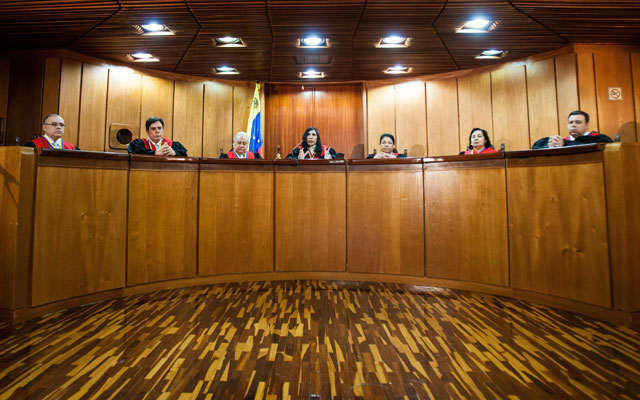Charged for Insulting Government Authority? Venezuela Supreme Court Crosses the Line
Elizabeth Simson /
In the U.S., courts often rule on the outcome of close elections and act as a mediation tool for candidates to ensure that the results are legitimate. In the end, the worst thing that happens is that one person is declared the electoral loser. Hopes and dreams may be dashed, but life goes on. Not in Venezuela, however. In fact, earlier this week, Venezuela’s Supreme Court launched a criminal investigation into one of Venezuela’s main opposition candidates simply for claiming election fraud.
On Wednesday, the court rejected the legal challenge launched by former presidential opposition candidate Henrique Capriles questioning the outcome of the April 14 presidential election. To add insult to injury, the court has also ordered Capriles to pay a $1,698 fine for insulting government authority and accusing the judicial system of bias in favor of the government.
And if that wasn’t enough, the court then went on to order the national prosecutor to open a formal criminal investigation into Capriles. The charges: offending the authority of government institutions and making unfounded charges of favoritism against government officials.
Earlier this year, Nicolas Maduro, Hugo Chavez’s handpicked successor, allegedly won the election by a margin of 235,000 votes out of roughly 15 million cast. After the results came in, Capriles stated publicly that the National Electoral Commission, which is controlled by Maduro loyalists, failed to investigate the more than 3,000 voting irregularities that took place across the country on Election Day and that the election was stolen from him as a result.
Venezuela is no stranger to un-free and unfair elections. However, the Supreme Court decision and the introduction of potentially criminal charges against a political opposition leader demonstrate the continued erosion of democratic institutions in Venezuela.
Over the past 14 years, Chavez undermined Venezuela’s democratic tradition by ruthlessly consolidating political power, undermining the rule of law, and instituting an increasingly militaristic regime. Although Maduro is not nearly as charismatic or politically savvy as Chavez, he has continued down the path of Chavez, silencing his opposition in the National Assembly, dispensing partisan justice through the army and police, and engaging in virtually non-stop anti-American diatribes. These are all signs that Venezuela’s international and domestic policies will continue to clash with U.S. interests in the region and are unlikely to change any time soon.
Now is not the time for the U.S. to extend its hand of friendship or institute a “reset” with Venezuela. Instead, the U.S. should continue to push for democratic and institutional reforms both within the country and the region at large.
Elizabeth Simson is currently a member of the Young Leaders Program at The Heritage Foundation. For more information on interning at Heritage, please click here.

